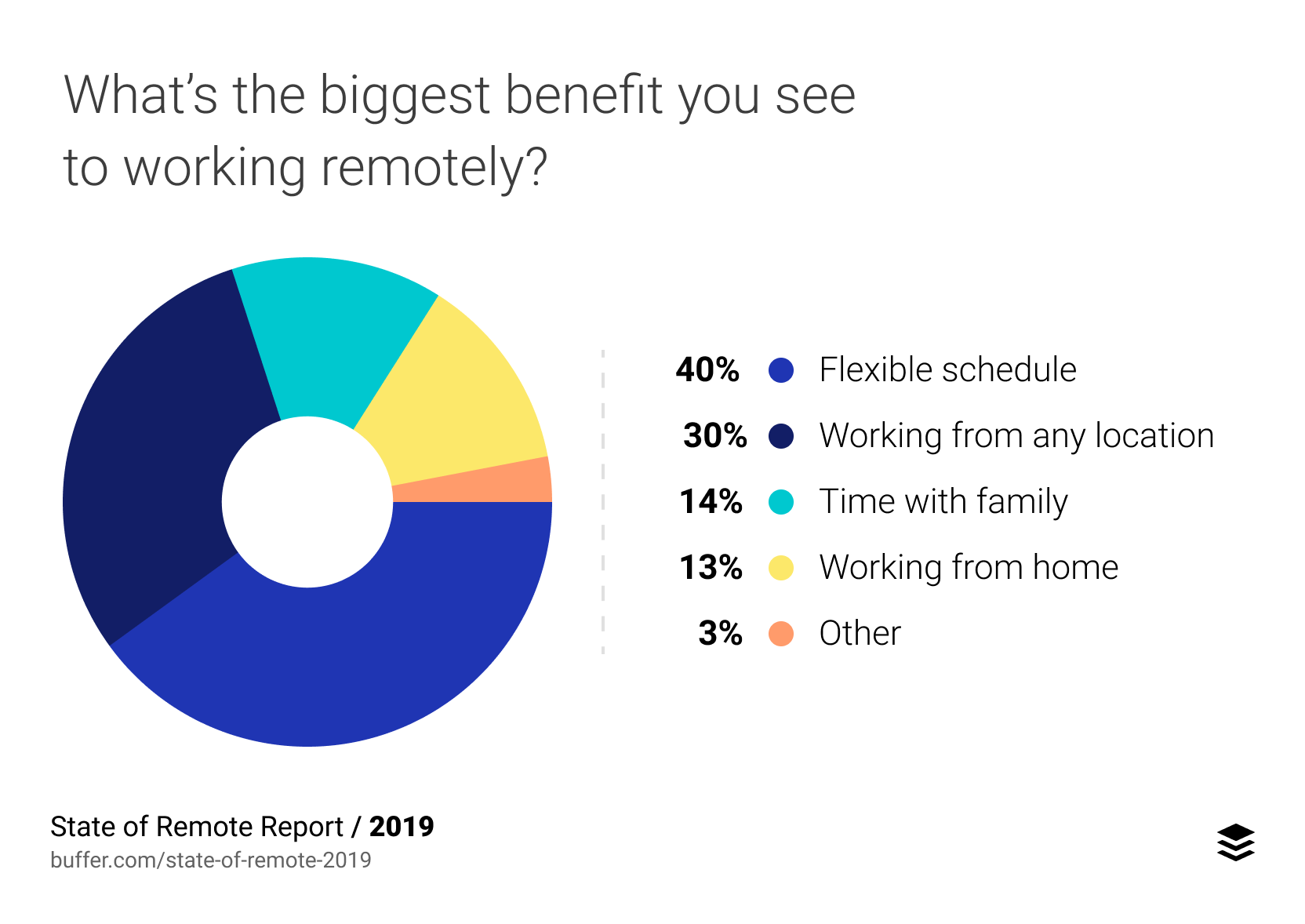Benefits of flexible working for employers and employees
Flexible working provides an employee some say over how, where and/or when they work. Whether it is working from home, working part-time, job sharing or even working from a different location, it has an array of benefits for both employees and employers. Flexi-working has been around for years but the pandemic has forced many companies to adopt flexible policies, where they may not have considered this previously.
Even before COVID-19 changed the rules, there was a huge appetite from employees for flexible working. A 2019 report found that 99% of respondents said they would like to work remotely for at least some of the time for the rest of their careers. While some employees are yearning for a return to the office and their old city-centre lives, a balance between home and office work could be the perfect combination.
The biggest benefit for employees, according to the research, was a ‘flexible schedule’ (40% of respondents), followed closely by ‘working from any location’ (30% of respondents).

Work-life balance
Flexible working and working from home can save hours a week on the commute, allowing employees to avoid the rush hour, and work around the school run, appointments, and other responsibilities. A better balance means less stress, which in turn can reduce sick days and increase productivity.
Work from anywhere
Flexible working does not just mean a change in hours, it can also mean a change in location. For some, the opportunity to work from different locations can be a huge incentive. If staff wish to relocate, a flexible approach to work location makes this much more achievable and could aid staff retention.
Wider talent pool
Employers who offer flexible working on an ongoing basis are more appealing to prospective employees. When not restricted by geography, businesses can access to the best and brightest candidates.
Cost saving
Offering flexible working means fewer staff will need physical desk space five days a week, which means employers can save on office overheads. Permanent offices could even be replaced with coworking spaces across a wider geographical area, increasing regional presence for both employees and customers.
Now that flexible working has been adopted around the world because of necessity, we hope that this will be the start of a permanent shift. With so many benefits from all involved, it isn’t hard to see why.